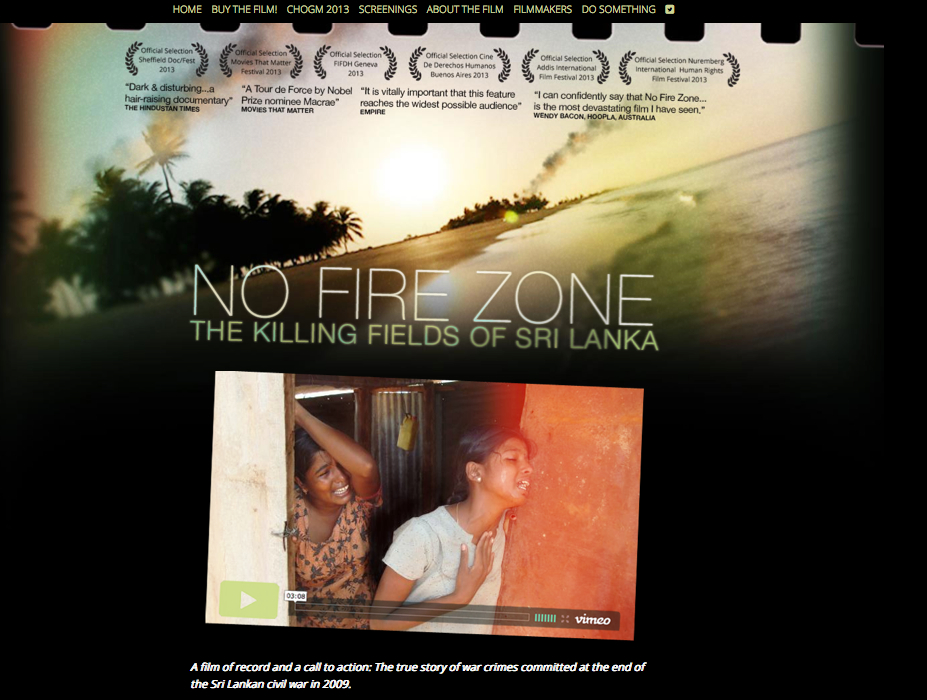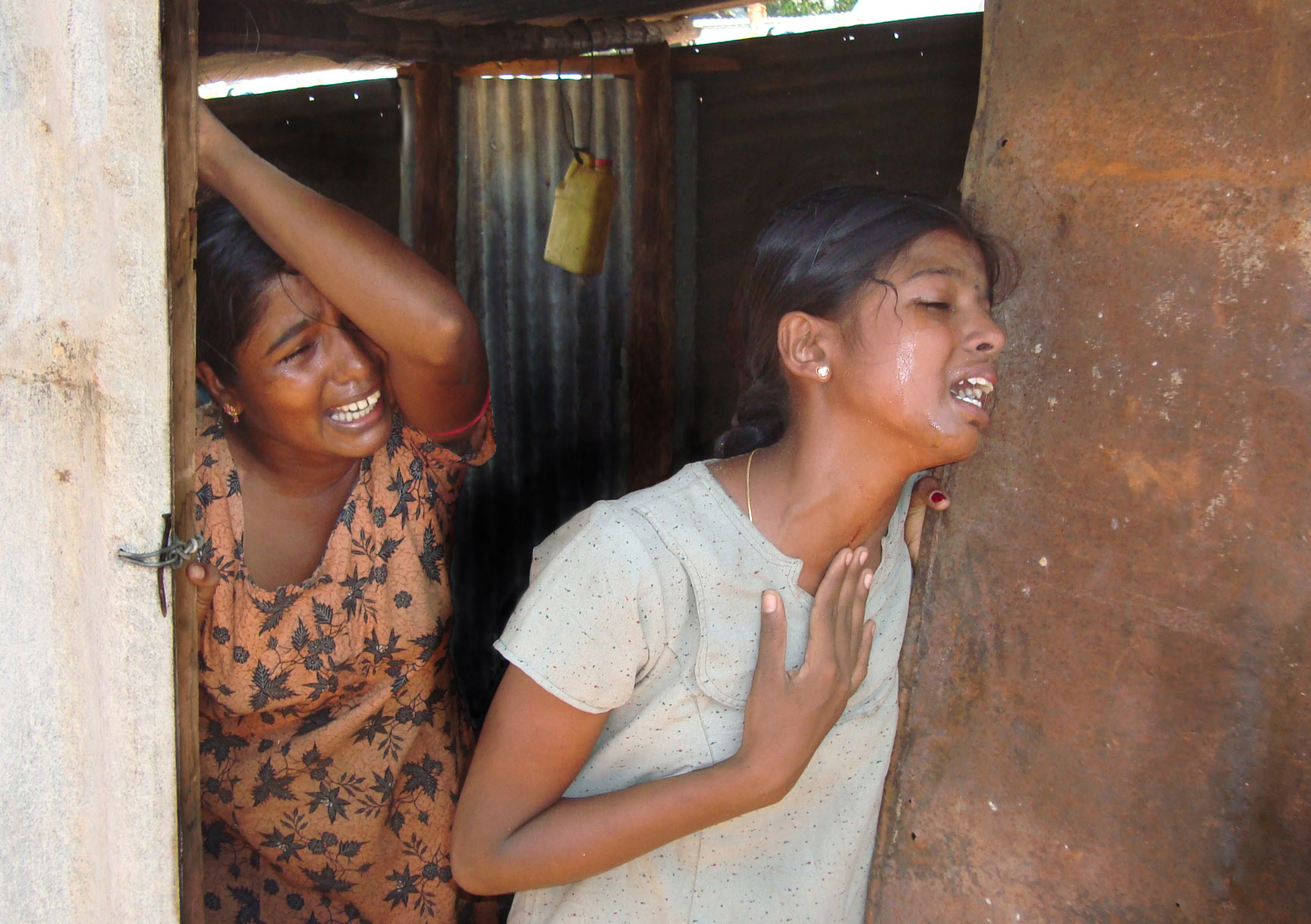
Leaders of former British colonies gather in Sri Lanka this week for a meeting that Sri Lankan President Mahinda Rajapaksa intended as a multi-million-dollar exercise in self-promotion. Thanks in part to Pulitzer Center grantee Callum Macrae it is becoming instead an opportunity to confront Rajapaksa on his government's brutal suppression of Tamil separatists in 2009.
Macrae's film, "No Fire Zone: The Killing Fields of Sri Lanka," has sparked demonstrations in India and in Malaysia a human rights group faces criminal charges just for showing the film. But the message is getting through: Indian Prime Minister Mammohan Singh announced this weekend that he will boycott the meeting, as will Canadian Prime Minister Stephen Harper. British Prime Minister David Cameron is still set to go but issued this remarkable tweet:
PM: Been watching @NoFireZoneMovie. Chilling documentary on Sri Lanka. Serious questions to put to @PresRajapaksa next week.
— UK Prime Minister (@Number10gov) November 9, 2013
Cameron's tweet is a reminder of the impact of journalism done right, how it can change minds and drive actions even at the highest reaches of government power.
Britain's Channel 4 re-screened the one-hour version of "No Fire Zone" last week, prompting strong social-media responses from actor Hugh Grant ("Reeling from #NoFireZone. Credit to Ch4"), activist Bianca Jagger, and Richard Uku, official spokesman for the Commonwealth, who tweeted about the "clearly disturbing" scenes and testimony in "No Fire Zone" and warned that "truth accountability and reconciliation all go together."
Rajapaksa's government hopes the Sri Lanka meeting will end with its designation as the organization's official chair for the next two years. That would be the normal course, but there is nothing normal about a situation that finds Sri Lanka accused of war crimes by UN officials on the scene in 2009 and the subject of a possible resolution of censure that may come up as soon as the meeting of the UN Human Rights Council next March in Geneva. The value of Macrae's film is that watching its scenes makes it impossible to dismiss the urgency of accountability now.






